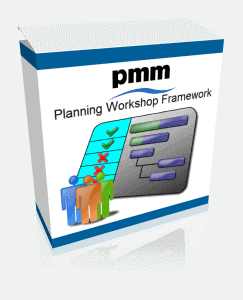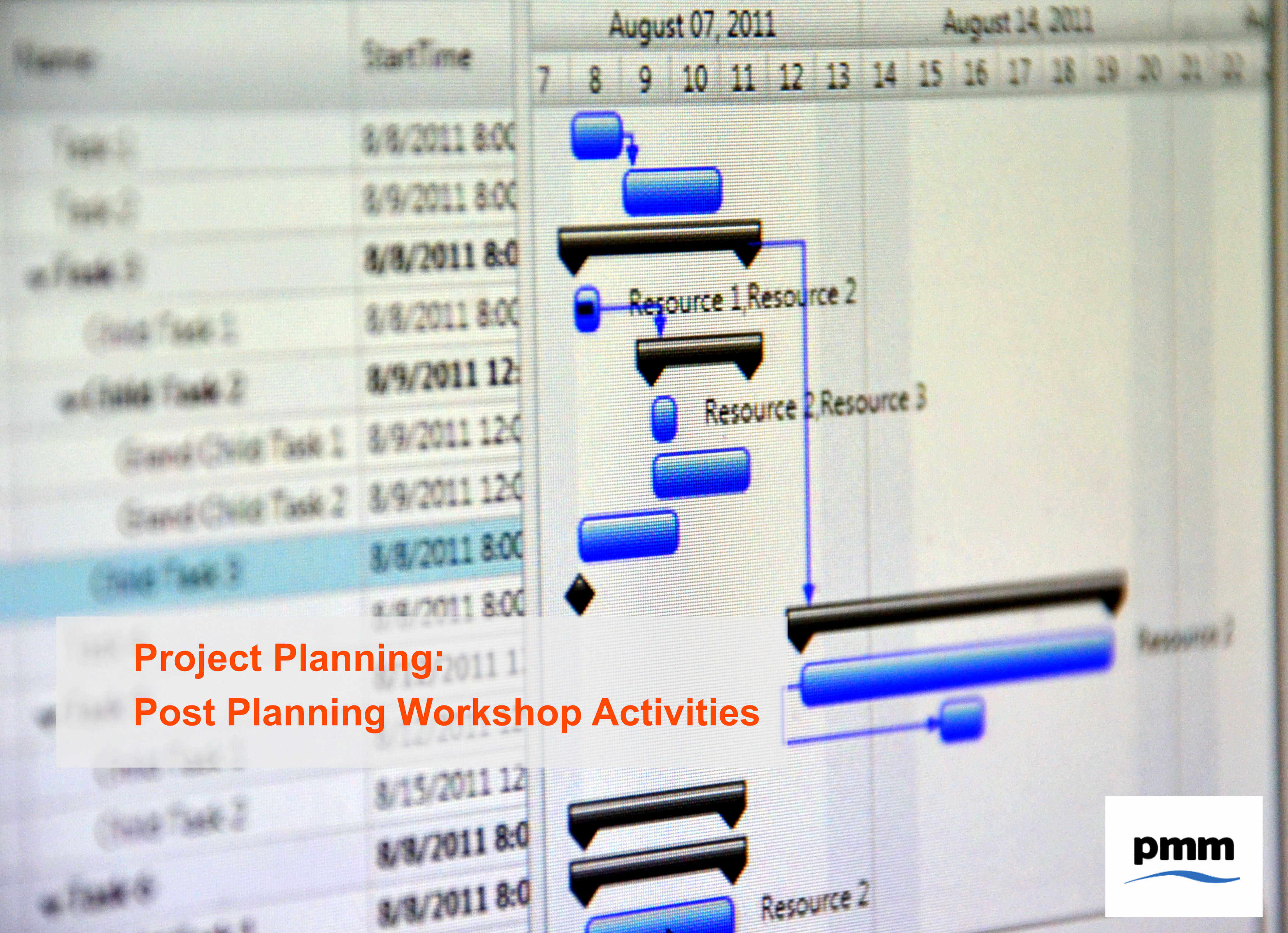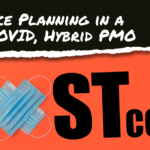This is the final post in the 4 part series of project planning workshops. It covers the activities after the workshop has been completed. These activities are important to fully realise the benefits of the session.
Write Up
The first activity is to capture all of the information from the workshop into electronic format:
- Timeline – capture milestones into tables and prepare timeline view
- RAIDs – capture into the appropriate Risk, Assumption, Issue and Dependency log
- Carpark – clearly document the issue and who owns the action to resolve
This information should be captured so that it is easy for each workshop participant to view their data.
Important tip: where possible, get someone else to reconcile that the information has been captured accurately. You should also keep the original workshop material so you have a reference if there are any queries.
Validation
 The “write-up’s” should be sent out to all workshop participants for review and confirmation that they are correct. Where possible, try to capture and publish within 48 hours of the workshop so the discussions are still fresh in everyone’s memory.
The “write-up’s” should be sent out to all workshop participants for review and confirmation that they are correct. Where possible, try to capture and publish within 48 hours of the workshop so the discussions are still fresh in everyone’s memory.
Set a deadline for when you want feedback / revisions or confirmation what has been captured is correct. If there are changes, check against what was captured in the workshop as it may be an error in transferring from the workshop material to the write-up (which should be a simple change). If the change is different to what was captured in the session, meet to discus so that the reason for the change is clearly understood so an initial assessment can be made if the change is valid. Depending on the impact of the change you may need to set-up a meeting with some (or in extreme cases) all attendees to discus and agree the proposed change.
Agreed Plan
When all the updates have been received, update the workshop write-up. This should then be re-circulated until all attendees agree. At this point there should be an agreed plan recognised by all attendees.
Execution
With a plan agreed, work can continue on the required project activities.
Each project / workstream owner should develop their part of the plan to the required level of detail. Make sure RAIDs are being managed and closed. All owners of “Car Park” items should aim to quickly resolve so that any impacts to the plan is known and can be incorporated.
Reporting
Each project / workstream should report progress against the agreed plan. This should be using the standard reporting process that has been defined. If the workshop has developed a mobilisation plan i.e. one that focuses on next 4, 8 weeks , etc, it is prudent to look for weekly updates to maintain pace and focus. Longer term plans can have a less frequent cycle.
Summary
The last 4 posts have covered a proven approach to running project planning workshops to help quickly drive out an agreed plan. The approach is effective and fun (plus helps bring teams together). This last post is very important. Workshops take a lot of time and effort to organise. They also require people to give up significant amounts of time. So ensuring the output of the workshop is captured and then actively used is where the PMO can really add the value.
Planning Resources
 The Planning Workshop Framework developed by PM Majik provides all of the resources, templates and guides to set up and run a planning working. This toolkit can save a lot of time and provides you with all the steps to quickly set up a planning session. It also comes with video tutorials for each step and full support.
The Planning Workshop Framework developed by PM Majik provides all of the resources, templates and guides to set up and run a planning working. This toolkit can save a lot of time and provides you with all the steps to quickly set up a planning session. It also comes with video tutorials for each step and full support.
For more information visit Planning Workshop Framework.






